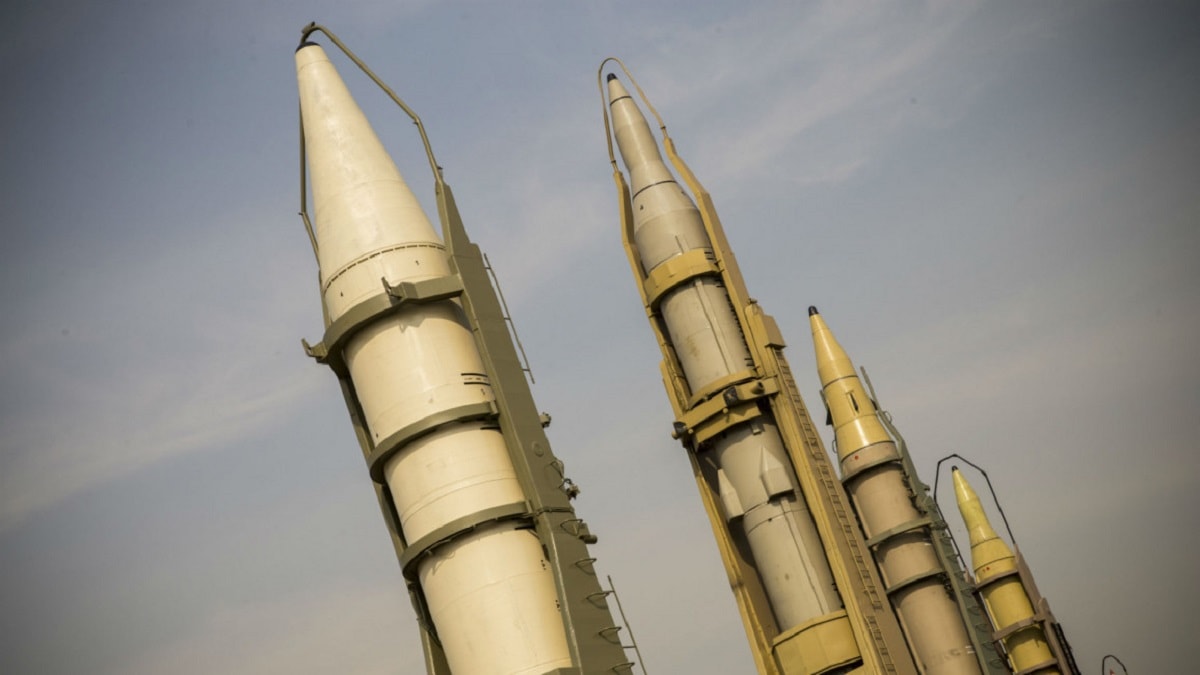Iranian security forces reportedly arrested Giles Whitaker and a number of other diplomats and foreigners on espionage charges. The Islamic Revolutionary Guard Corps (IRGC) said the group violated a prohibited zone close to an area where the Iranian military was testing missiles. The IRGC evidently missed the irony of justifying their arrest in Whitaker’s alleged collection of soil samples. Thirty-three years ago, Iraqi President Saddam Hussein arrested (and subsequently executed) British-Iranian journalist Farzad Bazoft on similar charges. That incident led to the West’s abandonment of the fiction that Saddam was somehow moderate.
Iran’s arrest of diplomats was predictable. For more than forty years, Iranian authorities have flouted treaties governing protection of diplomats and diplomatic property. The United States cannot dismiss the 1979 seizure of the U.S. Embassy as the action of a radical fringe. Masoumeh Ebtekar, spokeswoman of the hostage-takers served as vice president of Iran under both Mohammad Khatami and Hassan Rouhani, both of whom many Western diplomats considered moderates. Far from apologizing for the embassy seizure, she has continued to justify it.
Simply put, the Islamic Republic glorifies hostage-taking and continues the practice because it works. For Tehran, hostage-taking is a profitable exercise. The Obama administration paid over $400 million in cash—by some accounts more than $1 billion—to win the release of Americans imprisoned in the country. President Obama denied that money was a ransom. “We do not pay ransom. We didn’t here. And we don’t—we won’t in the future—precisely because if we did, then we would start encouraging Americans to be targeted,” he said. The was spin. The IRGC understood the cash was ransom. “Taking this much money back was in return for the release of the American spies,” Brigadier General Mohammad Reza Naghdi, commander of the paramilitary Basij, said, a claim the Iranian press repeated over subsequent weeks.
Nor was Obama the only one to pay cash for hostages. President Jimmy Carter caved to Iranian extortion with the 1981 Algiers Accords. During Ronald Reagan’s campaign, his team criticized Carter for negotiating under fire, but then did the exact same thing. Beginning in the middle of the 1980s, Iranian proxies in Lebanon began kidnapping Americans. The root of President Ronald Reagan’s arms-for-hostages scheme was an attempt to ransom these citizens. On January 17, 1986, Reagan signed an order authorizing the sale of missiles to Iran. Under terms negotiated by senior national security aides, Tehran would order Hezbollah and other proxy groups to release American hostages as soon as Iranian authorities received the weapons. At first it seemed to work. Iran let many Americans go—at least those whom Hezbollah had not tortured to death—but as soon as intermediaries delivered the last batch of missiles, Hezbollah simply took more Americans hostage.
For Iranian leaders today, the only difference between diplomats and academics or journalists is that diplomats bring a higher price. And the only difference between hardliners and so-called reformers is that the former seize the hostage while the latter act as their agents to negotiate a good price to sustain the regime.
While Reagan helped affirm Iran’s calculation that hostage-taking works, his tenure also provides insight into alternate responses. While Carter aides argued persistence of diplomacy convinced Supreme Leader Ruhollah Khomeini to release the hostages, in 1981, former Kissinger aide Peter Rodman observed in the Washington Quarterly that this was backwards. What actually changed Khomeini’s calculus was the isolation the Islamic Republic suffered in the wake of the hostage seizure. With time, that isolation became too great to bear.
It is time to replicate that isolation. All Western embassies in Tehran should close. At best, they have become hostages-in-waiting. The United States and Europe can provide visa services from Dubai. Likewise, all European countries should send Iranian diplomats home. Maximum pressure should resume. Until Iranian authorities learn that the cost for hostage-taking is impoverishment and isolation, then they will simply continue a strategy that has proven lucrative and diplomatically rewarding.
Expert Biography – Now a 1945 Contributing Editor, Dr. Michael Rubin is a Senior Fellow at the American Enterprise Institute (AEI). Dr. Rubin is the author, coauthor, and coeditor of several books exploring diplomacy, Iranian history, Arab culture, Kurdish studies, and Shi’ite politics, including “Seven Pillars: What Really Causes Instability in the Middle East?” (AEI Press, 2019); “Kurdistan Rising” (AEI Press, 2016); “Dancing with the Devil: The Perils of Engaging Rogue Regimes” (Encounter Books, 2014); and “Eternal Iran: Continuity and Chaos” (Palgrave, 2005).

